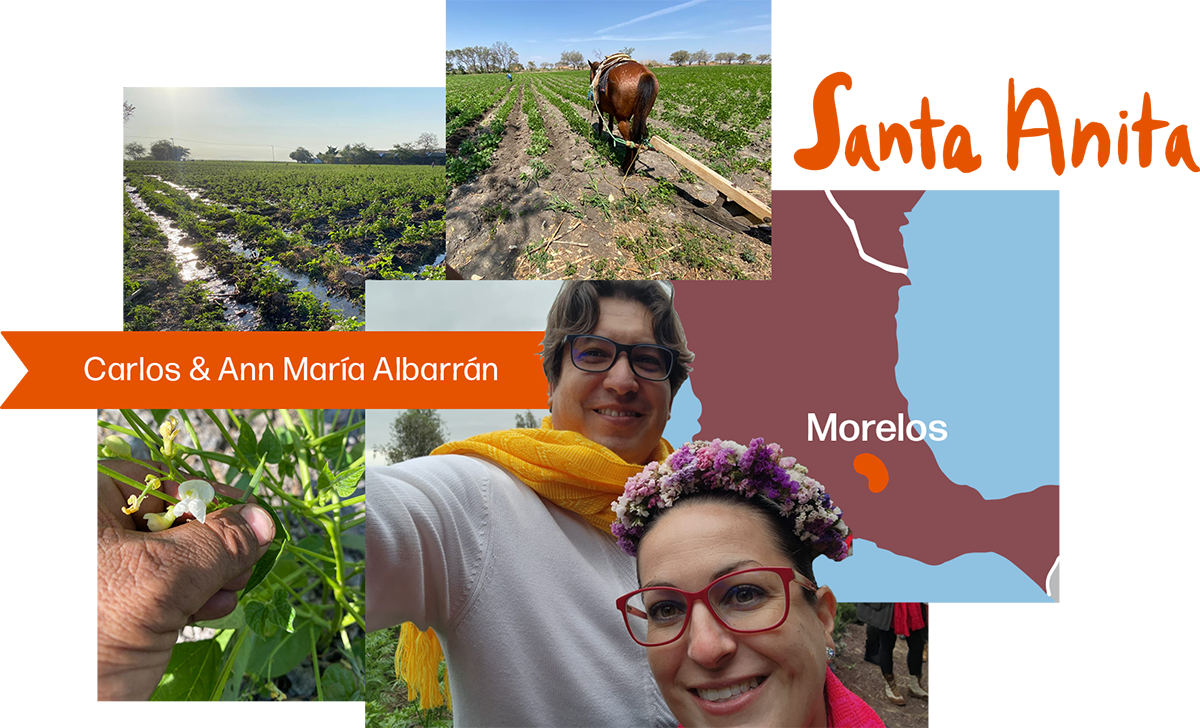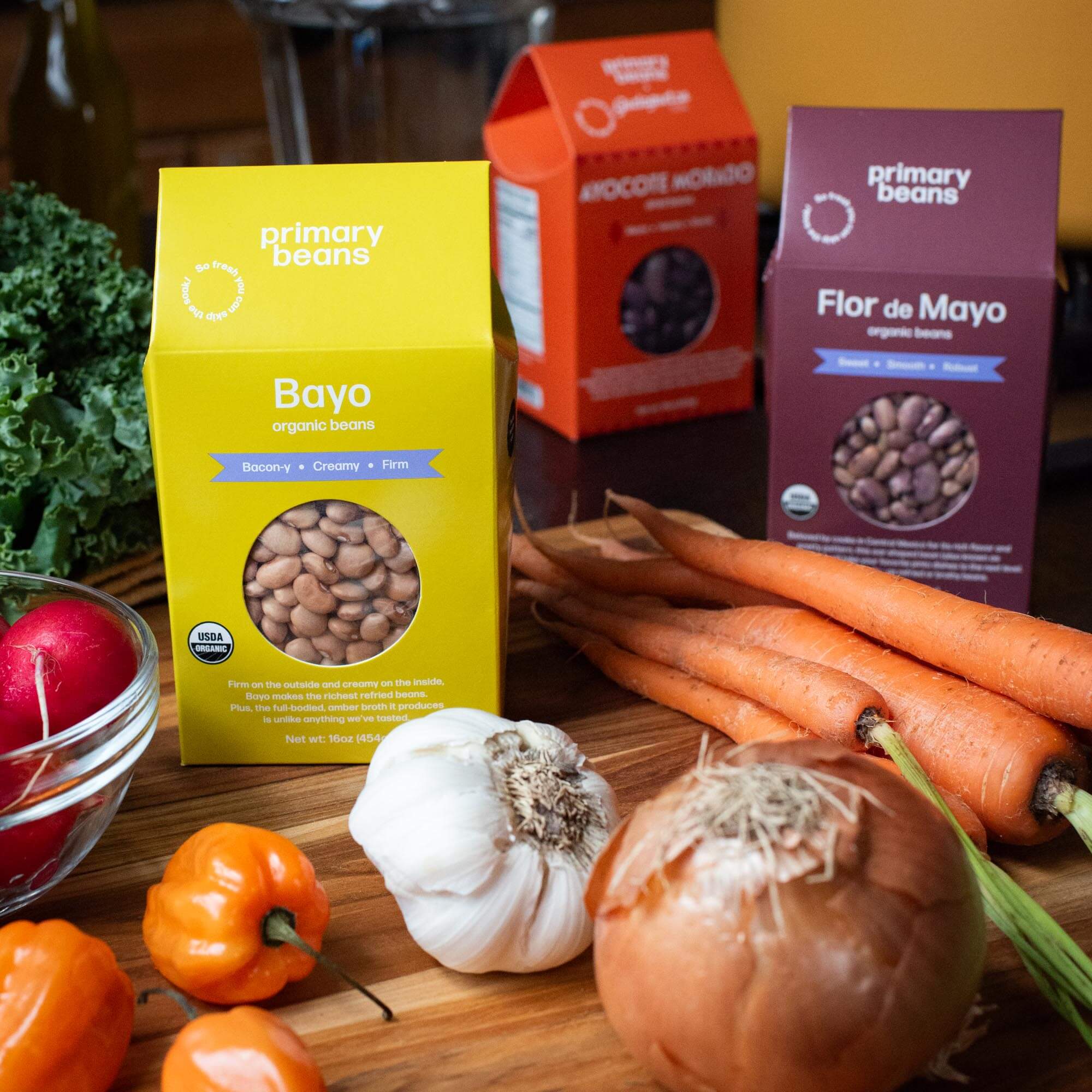
Our cooking guide dispels long-held myths and makes bean cooking easier and accessible for all.
get the guide


Sourcing notes
Grown by: Carlos and Ana María Albarrán
Region: Morelos, Mexico
Practices: Builds healthy soils, preserves cultural heritage, diverse crop rotations

Sourcing notes

Grown by: Carlos and Ana María Albarrán
Region: Morelos, Mexico
Practices: Builds healthy soils, preserves cultural heritage, diverse crop rotations
Sacramento Valley has a long history of producing butter beans, which love its warmer climate compared to other California regions. Chris Capaul’s family has been growing diverse beans and vegetables since 1915 – in fact, he still has the original horse-drawn bean cutter! While bean production has declined and farms have gotten bigger through consolidation, Chris stands out as an innovator – perfecting his rotations of vine-type baby butter beans and rice, and preserving Speckled Bayo beans, a rare variety his father once grew. His careful growing methods nurture the land and produce beans far richer in flavor.

Meet us in the kitchen!
From weeknight to date night, quick & easy to low & slow, refreshing salad to comforting stew – we've got you covered.
browse recipesMeet us in the kitchen!

From weeknight to date night, quick & easy to low & slow, refreshing salad to comforting stew – we've got you covered.
browse recipes